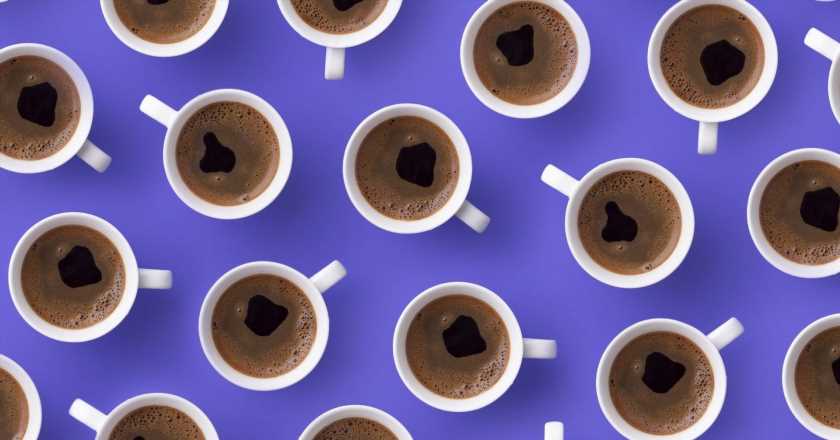
Can’t get out of bed in the morning without a cup of coffee? Feel sick every time you try to go caffeine-free? It’s not addiction that’s got you in its grip – it’s habit.
Most of us love coffee. It gets us out of bed in the morning, helps us power through boring meetings and makes us nicer people come 3pm. And coffee boasts a whole load of proven health benefits, from improving gut health to reducing the risk of cardiovascular disease and stroke – if you stick to three cups a day. But despite its restorative powers, it seems like more people are giving up coffee and caffeine for good.
In the age of hustle culture, overwork and burnout, being ‘addicted’ to coffee is almost like another badge of busyness honour. We hear people boast that they’re on their fifth Americano of the day… and it’s only 11am. And that, I’m sure, is one reason others are increasingly going coffee cold turkey. I’ve got friends who quit the black stuffin a bid to be free from any and all addictions. Others have wanted to reduce their reliance on external stimulation or were worried about the effect coffee was having on them when they missed their daily espresso.
You may also like
Benefits of coffee: can drinking caffeine before you exercise improve your fitness?
But coffee isn’t really addictive at all. Yep, you read that right: coffee and caffeine aren’t addictive. We often talk about being addicted to it, however, because we can develop a physical dependence on caffeine, explains registered nutritionist Clarissa Lenherr. So, why do we make that mistake?
“When we consume caffeine, it halts the production of adenosine – a neurotransmitter that has a calming effect and can help promote sleepiness. Over time, our brains may produce more adenosine receptors in response to this,” Lenherr tells Stylist. “And the more receptors we have, the more caffeine we need to get the same alert, energised feeling. Over time this increased need for caffeine can seem like an addiction.”
Why do we feel ‘addicted’ to caffeine?
It impacts our brain’s chemical production
As well as halting adenosine, caffeine causes us to produce more dopamine – a chemical that helps us feel motivated, awake and alert. According to the National Institute on Drug Abuse, however, that stimulation doesn’t disrupt the reward circuits in the brain that is necessary for an addiction. So, from a technical point of view, you can’t be ‘addicted’ to something that doesn’t overwrite your brain’s reward system.
Performative productivity requires caffeine
Of course, caffeine dependency goes beyond biology. Lenherr explains that some people are dependent on being artificially pepped up by energy products: “Without them, they may no longer feel themselves or be as productive/active.” We’ve all worked with someone who survived on coffee and buzzed about the office like a manic wasp. Often, that frantic energy is linked to too little sleep, stress and poor nutrition.
It’s a hard habit to crack
And then you’ve got the fact that so much of coffee is about routine. No matter what my day looks like, I always wake up an hour before I need to so that I can have a pot of coffee in bed with the papers. On the very occasional morning when I don’t have time for a coffee, it feels like a crucial part of my routine is missing, and that can elicit feelings of fatigue, confusion and general ‘not-my-selfness’.
How to cut down on caffeine
The key to cutting down if you feel like you drink too much coffee is working out when and why you drink it. If it’s something you do almost on autopilot, try consciously taking a 10-minute break before reaching for the kettle or having an alternative drink to see if it hits the spot first. Matcha and rooibos teas can make a nice change – or try a decaf coffee (I’ve recently switched my first and third coffees of the day for a Barleycup drink).
Perhaps you rely on caffeine rather than prioritising sleep, so if you can’t get out of bed without a cup, maybe it’s time to think about getting more rest. It’s also worth assessing why you need to be so alert throughout the day. Could a lunchtime walk leave you feeling more refreshed or do you need to drink more water/eat a heartier lunch for increased energy?
Coffee can be really good for us, but if your habit is out of control, it’s good to know that you’re not actually addicted to the stuff.
For more nutrition facts, visit the Strong Women Training Club.
Images: Getty
Source: Read Full Article